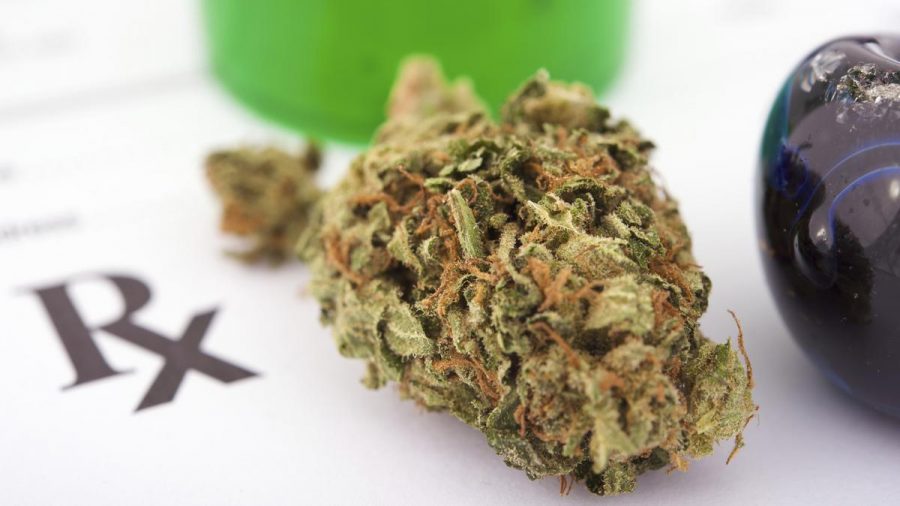Is medical cannabis becoming a preferred ADHD treatment over Adderall?
More people are being diagnosed with attention deficit hyperactivity disorder (ADHD), with research demonstrating a 6.1 percent increase in diagnoses among American children between the late 1990s and 2016; according to the Centers for Disease Control and Prevention (CDC). As more cases begin to surface, so too does the level of interest in using cannabis for ADHD.
Almost 10 percent of American children were diagnosed with ADHD in 2016; equivalent to approximately six million children. While the vast majority of ADHD cases are treated using stimulants – like Adderall and Ritalin – the adverse effects of these types of medicine have become increasingly prominent.
Stimulants of this kind work by boosting dopamine levels for improved concentration. However, these addictive medicines don’t come without their side effects, with insomnia and agitation being commonly experienced by patients who are prescribed stimulants for ADHD.
It has not been unheard of for children to suffer from heart conditions and experience fatal cardiac arrest as a result of using stimulants, further prompting cause for concern. With so many dangers and discomforts tied to the use of stimulants, more parents are seeking out alternative treatment options, such as cannabis for ADHD.
Cannabis for ADHD: Stimulant medications present health risks and potential for addiction
Patients who use stimulants for ADHD can consume their medicine in the knowledge that they have been approved by the U.S. Food and Drug Administration (FDA). Nonetheless, this is not to say that these medicines are risk-free.
For example, Adderall is listed as a Schedule 2 drug in the United States and so, it has a “high potential for abuse.” Aside from causing sleeplessness and agitation, some other common side effects associated with stimulants include stunted growth, lack of appetite, tolerance/resistance and lethargy.
To make matters worse, dosages tend to be increased in order to combat the decreased effectiveness caused by tolerance. Cannabis, on the other hand, is a non-addictive substance that can also increase dopamine levels, thus aiding ADHD patients with concentration. Moreover, cannabis-derived cannabinoids have shown promise in boosting appetite, relieving anxiety and calming the mind, but further research is needed.
At the current time, due to the U.S. federal government restricting research into the medicinal benefits of cannabis – a restriction that made some leeway when the Drug Enforcement Administration (DEA) announced in mid-2019 that it would be pushing forward with research applications – the effects of using cannabis for ADHD remain unclear.
Cannabis for ADHD: Medical experts say cannabis may impair short-term memory
Pediatric patients who suffer from ADHD, which is characterized by impulsivity, hyperactivity and concentration problems, are benefiting from medical cannabis as a treatment. This was confirmed by family medicine physician Elizabeth Spaar, who works at a practice located in Verona, Pennsylvania.
“They’ve seen improved performance in school and happier and calmer kids at home,” said Spaar. She’s not the only medical professional who supports the idea of using cannabis for ADHD.
Licensed pediatrician and medical director of Tampa, Florida-based clinic Wholistic Releaf, David Berger, revealed – during an interview with Insider – that he frequently prescribes medical cannabis to help wean ADHD patients off harmful stimulants. Berger claims that he has managed to help 20 pediatric patients quit using stimulant drugs by advising them to consume a cannabinoid combination comprising two primary cannabinoids: psychoactive THC (tetrahydrocannabinol) and non-psychotropic CBD (cannabidiol).
New York-based neurologist Roni Sharon often prescribes medical cannabis to patients with different types of conditions, such as post-traumatic stress disorder (PTSD). Notwithstanding, Sharon says that prescribing medical cannabis to young children – whose brains are still growing – can be risky.
“With adolescent brains, you have to be very careful,” he said. Sharon’s opinion is shared by many medical experts, who claim that cannabis may impact cognitive development and cause memory loss; particularly in ADHD patients with developing brains.
Qualifying to receive medical cannabis for ADHD
Accessing medical cannabis for ADHD is no easy feat. Well, not yet anyway. Soon, perhaps, but hurdles must be overcome in the form of conducting trials into the plant’s suitability as an ADHD treatment before doctors can prescribe medical cannabis to diagnosed patients.
Based on the findings of a study published in the Lancet, the evidence pointing to cannabis’ efficacy as a treatment for mental health problems like ADHD is inadequate. Plus, the American Academy of Pediatrics only approves of medical cannabis use among children when the patient has a life-threatening illness.
Currently, no state permits the use of medical cannabis for ADHD. Then again, in the event that a child is diagnosed with an additional qualifying condition featured on their state’s list of eligibility criteria, they could still get approved for plant-based medicines; more studies are needed.








